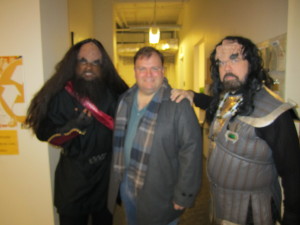As the year ended, it was announced that Spiderman: Turn Off The Dark, was closing this January. Given the interminable previews, technical problems and public discussion of Julie Taymor’s dismissal as they moved to revamp the production, wry comments were never far from people’s lips when the show was mentioned.
The show served as a reminder that having successful big names attached to a show like The Edge, Bono and Julie Taymor, doesn’t guarantee success.
I was going to write a post on another topic today, but I got to reading about the difficulties faced by the original production of West Side Story in 1957. Despite also having big names like Arthur Laurents, Jerome Robbins and Leonard Bernstein attached to it, the show was a hard sell and faced a number of problems.
Stephen Sondheim, who hadn’t really become a household name at the time, didn’t want to work in the project for fear of being pigeonholed as a lyricist instead of a composer. His mentor, Oscar Hammerstein, had to convince him that working in such talented company would be invaluable for his career.
No one wanted to produce the show because its gritty story of street gangs ran counter to the happy, bright vision of musicals of the 1950s. (Remember, this is based on the tragic story of Romeo and Juliet, two of the main character are dead on stage by intermission and the two leads by the end of the story.) Even when two producers did sign on, one was unable to raise money and backed out soon after. Some theater owners refused to let their buildings be used for the show.
Finally, Hal Prince, who had previously turned the show down, was convinced to come on as a producer by Stephen Sondheim.
There were high tensions between the four collaborators over many of the artistic decisions, especially between the domineering Jerome Robbins and everyone else. Reportedly by opening night, none of the other three were on speaking terms with Robbins.
But the result was a show that was absolutely groundbreaking at the time, moving contrary to so many conventions. Now, more than 50 years later, West Side Story is one of the most enduring musicals on Broadway. It doesn’t seem quite so innovative today because so many others followed its lead.
In retrospect, it is easy to compare West Side Story to Spiderman and identify why one succeeded and the other failed, but had you been involved in the process of mounting the first production of either one, it would have been difficult to predict the eventual outcome correctly.
By some measures, Spiderman with the built in name recognition of the property, director and producers, along with all the funding behind it should have succeeded where West Side Story with its edgy story that no one wanted fund should have failed.
Today Drew McManus made a wish list for arts and culture in 2014 and asked what his readers wished for.
It wasn’t until I read about West Side Story and thought about Spiderman that I realized my wish is for artists and arts and cultural organizations to be able to forgive themselves for their failures and to realize that success is not always easy or immediately apparent.
Excepting Spiderman for a moment, there are huge, well funded corporations who perform extensive research and data analysis who still fail miserably in their endeavors. (See JCPenny’s assumption that consumers wanted honest pricing.)
While differences in economic realities may allow them to weather the consequences of their mistakes better than you can, at least recognize that having one hundred times your funding doesn’t make them even 10 times a better decision maker than you.
Conversely, your lack of funding does not indicate you lack brains and ability.



This is such a thought-provoking post! It’s fascinating to consider how everyday beauty in design, even in functional spaces like…